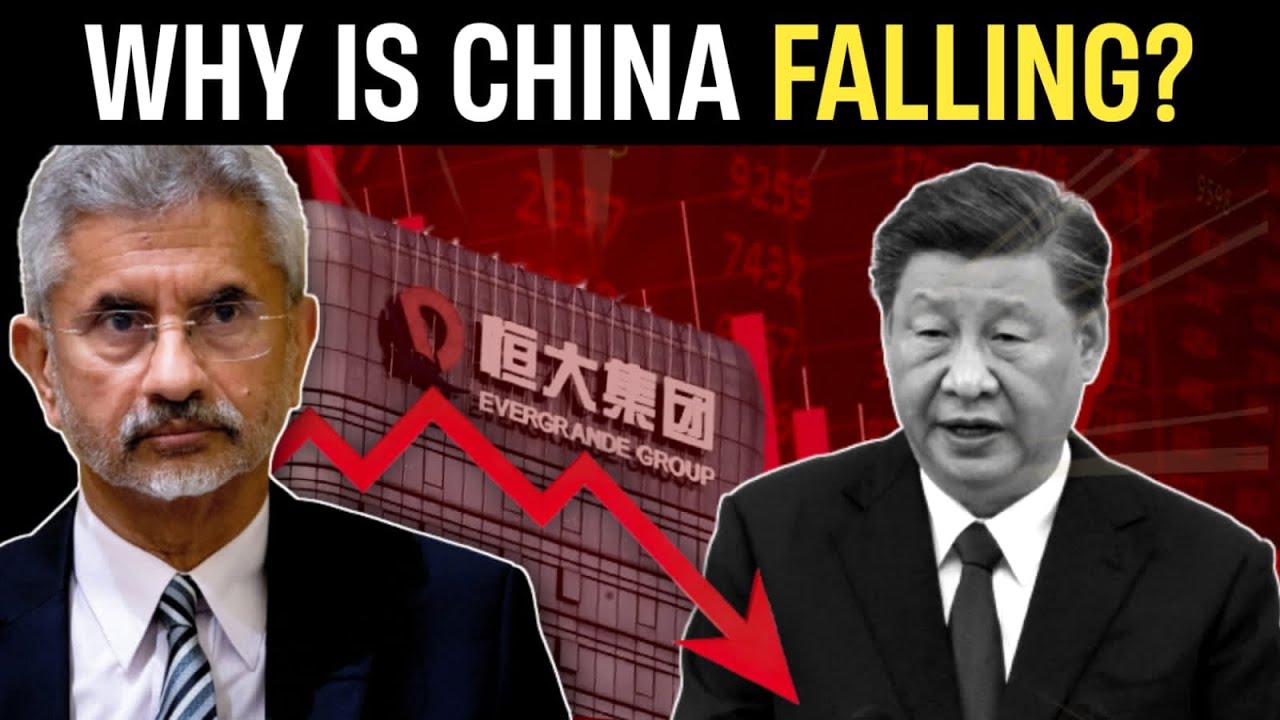Evergrande: the end of China's property boom | FT Film
Summary
TLDRThis video explores the dramatic rise and fall of Evergrande, China's largest real estate developer, which leveraged enormous debt to fuel rapid expansion. It examines how the property sector has been a key driver of China's economic growth, bolstered by urban migration and government support. However, Evergrande's collapse, fueled by excessive borrowing, marks a pivotal moment in China's economic trajectory. The video discusses how the failure of Evergrande could have profound implications for China's economy and the global market, as it signals the end of an unsustainable property boom.
Takeaways
- 🏗️ China's economic boom has been largely driven by the property sector, accounting for one-third of its economic output.
- 🏘️ Evergrande, founded in 1997 by Hui Ka Yan, became China's largest and most indebted real estate developer, with over $300 billion in liabilities.
- 💰 The rise of Evergrande was fueled by China's property boom, cheap credit, and urban migration, where millions moved from the countryside to cities.
- 🚧 Evergrande's business model involved buying land, building apartments, and selling them before completion, but the company misallocated funds, causing project delays and public anger.
- 📉 The Chinese government's 2020 'three red lines' policy aimed at reducing debt, halted Evergrande's borrowing, which contributed to its financial downfall.
- ⚖️ Evergrande’s failure is seen as a symbol of China's excessive leverage problem, reflecting broader issues within its property sector.
- 🌆 China's property market is now dealing with high levels of unsold homes, with empty apartments able to house 90 million people.
- 🚨 Evergrande's missed debt payments led to a financial crisis, particularly affecting international investors, who had poured $20 billion into its bonds.
- ⚠️ The collapse of Evergrande is compared to the 2008 Lehman Brothers crisis, but experts believe the Chinese government will step in to contain the damage.
- 🔄 The Evergrande situation signals a shift in China’s economic model, from property-driven growth to more stable and sustainable investment, particularly in green industries.
Q & A
What is the primary focus of the story in the provided transcript?
-The story primarily focuses on the collapse of Evergrande Group, one of China's largest real estate developers, and its significant impact on China's economy due to excessive debt and mismanagement.
Why was the property sector so crucial to China's economy?
-The property sector was crucial to China's economy because it accounted for a third of China's economic output. It was also tied to the country's urbanization drive, where millions of people moved from rural areas to cities, driving the demand for housing.
How did Evergrande grow so quickly in the real estate market?
-Evergrande grew rapidly by capitalizing on China's property boom, fueled by cheap credit and increasing urbanization. The company borrowed heavily, expanded aggressively, and used pre-sales of apartments to fund new projects, quickly accumulating $150 billion in assets within a decade.
What were the 'three red lines' policy, and how did they affect Evergrande?
-The 'three red lines' policy was introduced by the Chinese government to limit the amount of debt that property developers could take on. It included specific thresholds for liability-to-asset ratio, net gearing ratio, and cash to short-term debt ratio. Evergrande, with its excessive debt, failed to meet these requirements, losing access to new credit and causing its financial troubles to escalate.
Why is Evergrande's collapse often compared to the Lehman Brothers collapse in 2008?
-Evergrande's collapse is compared to the Lehman Brothers collapse because both involved large companies whose downfall was triggered by excessive debt and had the potential to cause widespread financial instability. Evergrande's massive debts and default on payments have spooked global markets, similar to how Lehman's collapse triggered the 2008 financial crisis.
How did Evergrande's business model contribute to its downfall?
-Evergrande's business model relied heavily on borrowing and using pre-sales of apartments to fund its projects. It took on significant debt to expand, often allocating funds to other ventures, which eventually led to stalled projects, angering homebuyers and disrupting cash flow.
What impact did Evergrande's crisis have on international investors?
-International investors, who had heavily invested in Evergrande's bonds, faced significant losses when the company defaulted. The crisis led to a loss of trust in Chinese property companies' offshore bonds, causing a collapse in the bond market for the sector and increasing difficulties for other developers to raise financing.
How did Evergrande's collapse affect China's construction workforce and local governments?
-Evergrande's collapse affected China's construction workforce, which relies heavily on property companies like Evergrande for jobs. It also impacted local governments that depended on land sales to developers for fiscal revenue, disrupting their financing and economic planning.
What was the significance of the 'ghost cities' phenomenon in China?
-The 'ghost cities' phenomenon refers to entire suburbs and cities in China filled with empty apartment blocks, a result of rapid construction during the property boom. These developments were often built in areas without sufficient demand, leaving many apartments vacant despite high property prices, reflecting the unsustainable nature of the housing market.
What lessons can be learned from Evergrande's collapse regarding China's economic model?
-Evergrande's collapse highlights the dangers of excessive leverage and reliance on property-driven growth. It marks a critical juncture in China's economic story, where policymakers are rethinking the model of fueling economic expansion through debt and property development, possibly shifting towards greener and more sustainable industries.
Outlines

This section is available to paid users only. Please upgrade to access this part.
Upgrade NowMindmap

This section is available to paid users only. Please upgrade to access this part.
Upgrade NowKeywords

This section is available to paid users only. Please upgrade to access this part.
Upgrade NowHighlights

This section is available to paid users only. Please upgrade to access this part.
Upgrade NowTranscripts

This section is available to paid users only. Please upgrade to access this part.
Upgrade Now5.0 / 5 (0 votes)





